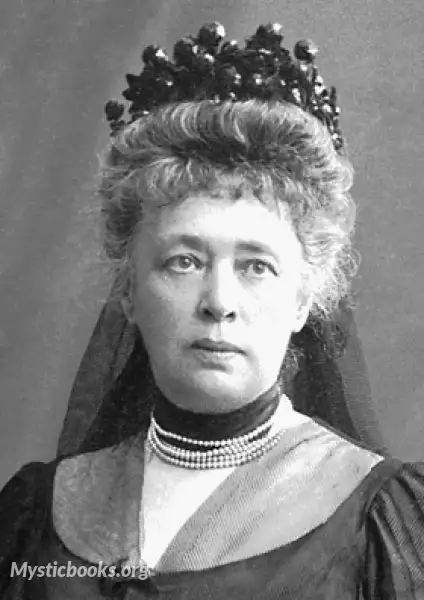
Timeline
Title
Country/Nationality
Bertha von Suttner
Bertha Sophie Felicitas Freifrau von Suttner was an Austrian-Bohemian pacifist and novelist. In 1905, she became the second female Nobel laureate (after Marie Curie in 1903), the first woman to be awarded the Nobel Peace Prize, and the first Austrian laureate.
Bertha Kinský was born on 9 June 1843 at Kinský Palace in the Obecní dvůr (cz) district of Prague. Her parents were the Austrian Lieutenant general (German: Feldmarschall-Leutnant) Franz Michael de Paula Josef Graf Kinsky von Wchinitz und Tettau (1769-1843), recently deceased at the age of 75, and his young wife Sophie Wilhelmine von Körner (1815-1884), who was almost fifty years his junior.
Her father was a member of the illustrious House of Kinsky via descent from Count Wilhelm Kinsky (1574-1634), being younger son of Count Franz Ferdinand Kinsky von Wchinitz und Tettau (1738-1806) and his wife, Princess Maria Christina Anna von und zu Liechtenstein (1741-1819), daughter of Prince Emanuel of Liechtenstein. Bertha's mother came from a family that belonged to untitled nobility of significantly lower status, being the daughter of her husband's comrade, Joseph von Körner (a captain of the cavalry in the Imperial Army), a distant relative of the poet Theodor Körner. Through her mother, Bertha was also related to Theodor Körner, Edler von Siegringen, namesake and great-nephew of the poet, who later served as the 4th President of Austria.
There are two main issues with religion that Suttner often wrote about. She had a disdain for the spectacle and pomp of some religious practices. In a scene in Lay Down Your Arms she highlighted the odd theatricality of some religious practices. In the scene, the emperor and empress are washing the feet of normal citizens to show they are as humble as Jesus, but they invite everyone to witness their show of humility and enter the hall in a dramatic fashion. The protagonist Martha remarks that it was "indeed a sham washing."
Another issue prominent in much of her writing is the idea that war is righteously for God, and leaders often use religion as a pretext for war. Suttner criticised this reasoning on the grounds that it placed the state as the important entity to God rather than the individual, thereby making dying in battle more glorious than other forms of death or surviving a war. Much of Lay Down Your Arms discusses this topic.
This type of religious thinking also leads to segregation and fighting based on religious differences, which Bertha and Arthur von Suttner refused to accept. As a devout Christian, Arthur founded the League Against Anti-Semitism in response to the pogroms in Eastern Europe and the growing antisemitism across Europe. The Suttner family called for acceptance of all people and all faiths, with Suttner writing in her memoirs that "religion was neighbourly love, not neighbourly hatred. Any kind of hatred, against other nations or against other creeds, detracted from the humaneness of humanity."
Books by Bertha von Suttner

Lay Down Your Arms: The Autobiography of Martha von Tilling
The book Die Waffen nieder! (Down with Weapons!) or Lay Down Your Arms! is the best-known novel by the author and peace activist Bertha von Suttner, who received the Nobel Peace Prize in 1905 for the book. The book was published in 1889 in German by...

Waffen nieder!
Die Waffen nieder! (Lay Down Your Arms!) follows Gräfin Martha Althaus, a young woman from Vienna, as she navigates the tumultuous political landscape of 19th-century Europe. Through her experiences during various wars—the Sardinian War of 1859, the...

Marthas Kinder
In "Marthas Kinder," Bertha von Suttner continues the story begun in her groundbreaking anti-war novel, "Lay Down Your Arms." Baroness Martha Tilling, the widow of the slain Friedrich Tilling, dedicates her life to carrying on his legacy of working f...